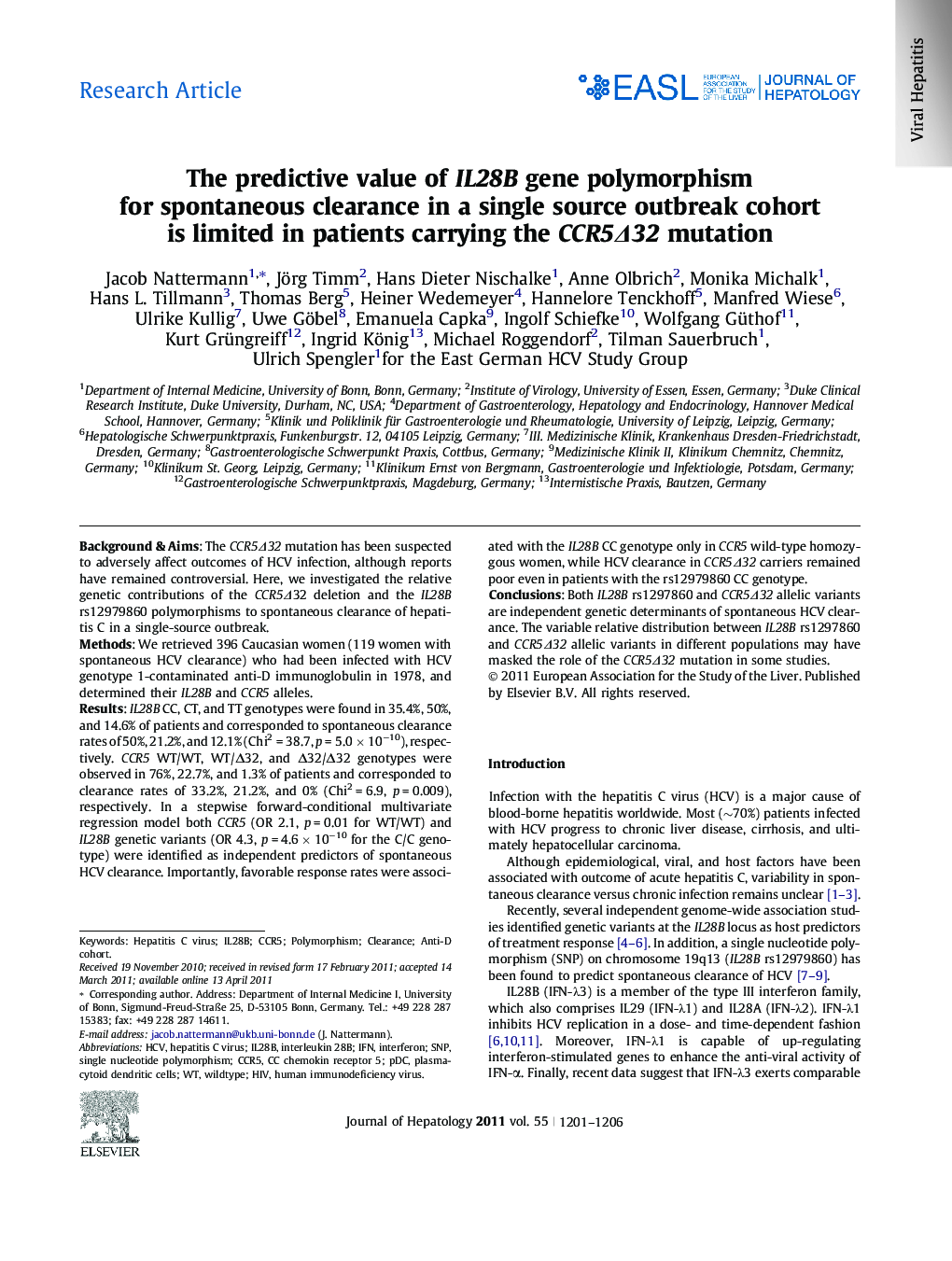| Article ID | Journal | Published Year | Pages | File Type |
|---|---|---|---|---|
| 6106410 | Journal of Hepatology | 2011 | 6 Pages |
Background & AimsThe CCR5Î32 mutation has been suspected to adversely affect outcomes of HCV infection, although reports have remained controversial. Here, we investigated the relative genetic contributions of the CCR5Î32 deletion and the IL28B rs12979860 polymorphisms to spontaneous clearance of hepatitis C in a single-source outbreak.MethodsWe retrieved 396 Caucasian women (119 women with spontaneous HCV clearance) who had been infected with HCV genotype 1-contaminated anti-D immunoglobulin in 1978, and determined their IL28B and CCR5 alleles.ResultsIL28B CC, CT, and TT genotypes were found in 35.4%, 50%, and 14.6% of patients and corresponded to spontaneous clearance rates of 50%, 21.2%, and 12.1% (Chi2 = 38.7, p = 5.0 Ã 10â10), respectively. CCR5 WT/WT, WT/Î32, and Î32/Î32 genotypes were observed in 76%, 22.7%, and 1.3% of patients and corresponded to clearance rates of 33.2%, 21.2%, and 0% (Chi2 = 6.9, p = 0.009), respectively. In a stepwise forward-conditional multivariate regression model both CCR5 (OR 2.1, p = 0.01 for WT/WT) and IL28B genetic variants (OR 4.3, p = 4.6 Ã 10â10 for the C/C genotype) were identified as independent predictors of spontaneous HCV clearance. Importantly, favorable response rates were associated with the IL28B CC genotype only in CCR5 wild-type homozygous women, while HCV clearance in CCR5Î32 carriers remained poor even in patients with the rs12979860 CC genotype.ConclusionsBoth IL28B rs1297860 and CCR5Î32 allelic variants are independent genetic determinants of spontaneous HCV clearance. The variable relative distribution between IL28B rs1297860 and CCR5Î32 allelic variants in different populations may have masked the role of the CCR5Î32 mutation in some studies.
